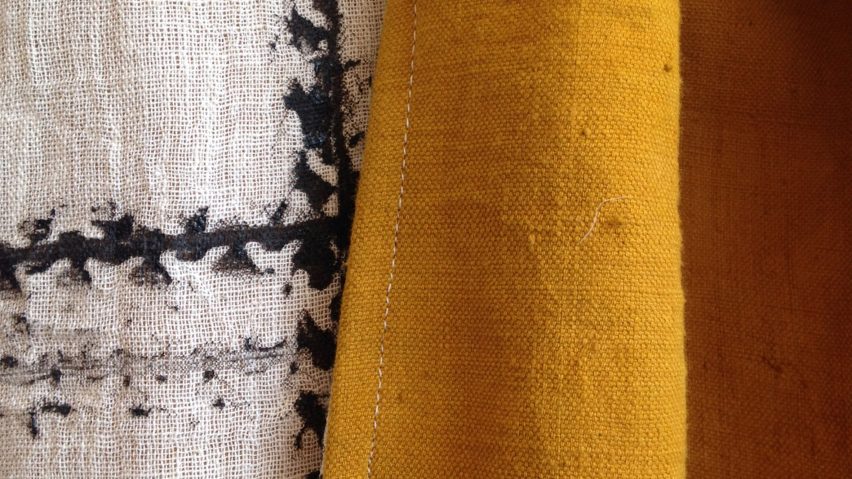
Kelly Gijsen patterns cotton scarves using ink made from pollution
Dutch designer Kelly Gijsen has collaborated with startup company Graviky Labs to create a range of scarves that are patterned with ink made from carbon emissions.
Gijsen, who presented the scarves at this year's Dutch Design Week, worked alongside Graviky Labs to develop a version of its Air Ink that would work on textiles.
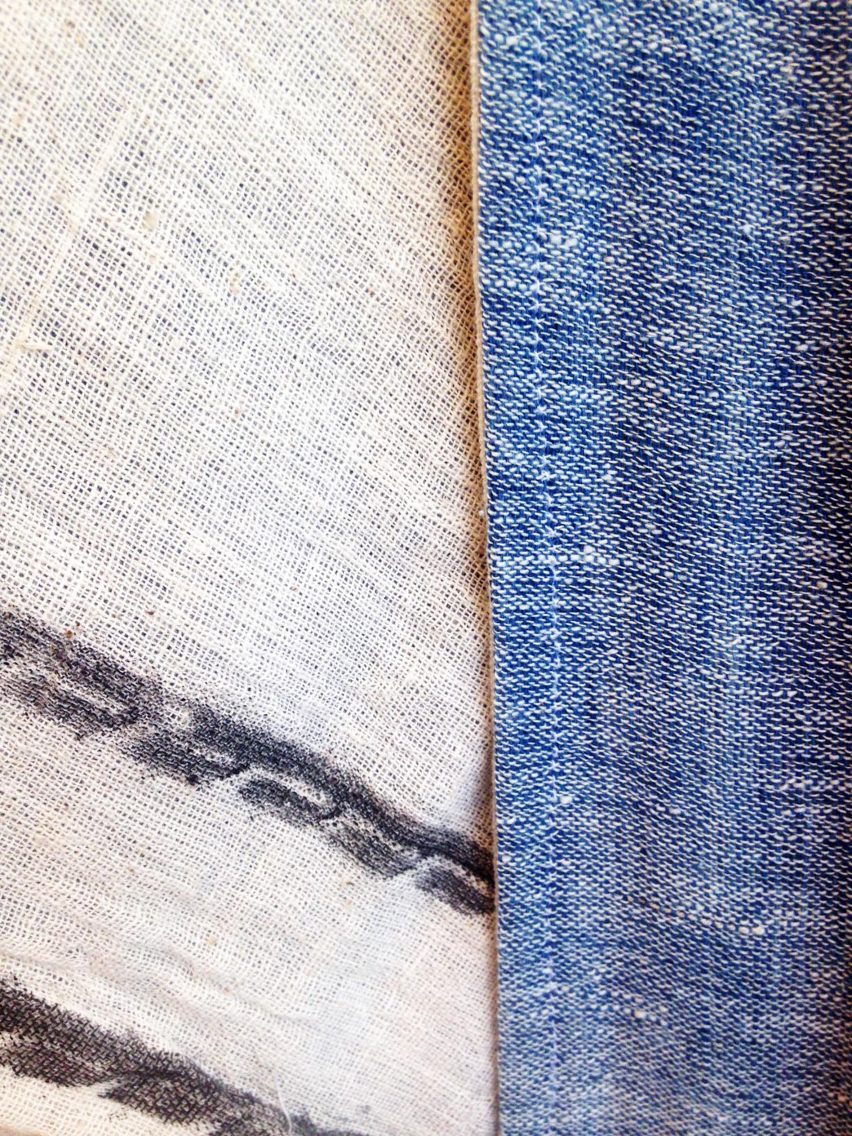
The Graviky Labs – an Indian startup made up of MIT Media Lab graduates – creates its Air Ink using carbon emissions that have been captured from vehicles and chimneys.
The process begins with a device developed by the team, named Kaalink, which captures the soot being emitted from these objects.
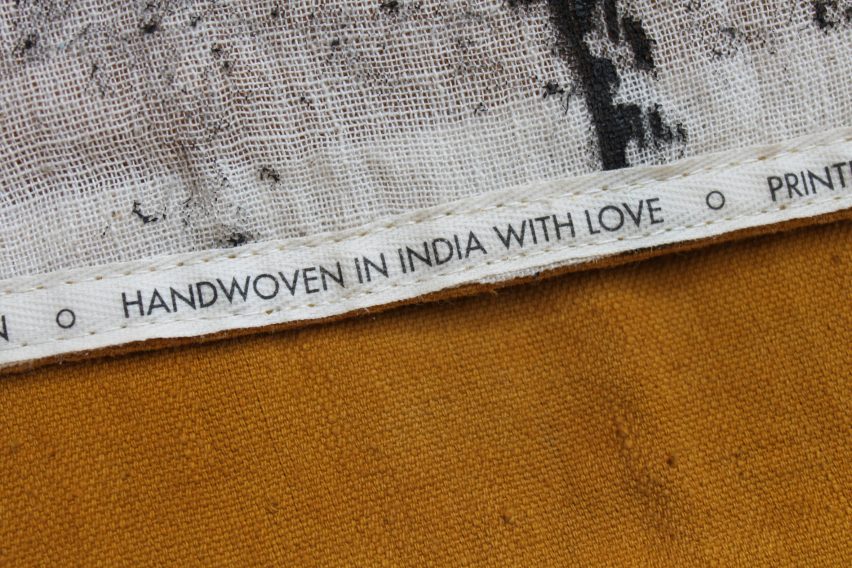
The soot collected then undergoes various processes to remove heavy metals and carcinogens. The end product is a carbon-rich pigment that used to make different inks and paints.
Before this collaboration, Air Ink had predominantly been used for wall paint and pens – but Gijsen approached the group for an ink made specifically for her field of work.
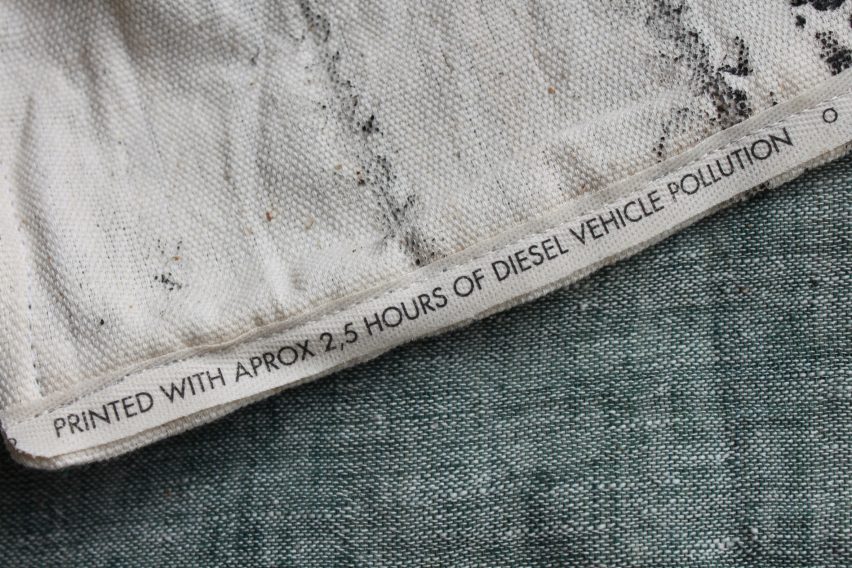
"I asked The Graviky Labs if they had created ink to print on textiles and they hadn't, which is how the collaboration started," Gijsen told Dezeen.
"I loved how they had turned something bad into something good, and created something aesthetic instead of polluting the environment and our lungs."
The scarves themselves are made from 100 per cent organic cotton and are available in a selection of natural-dyed colours, ranging from indigo to mustard yellow.
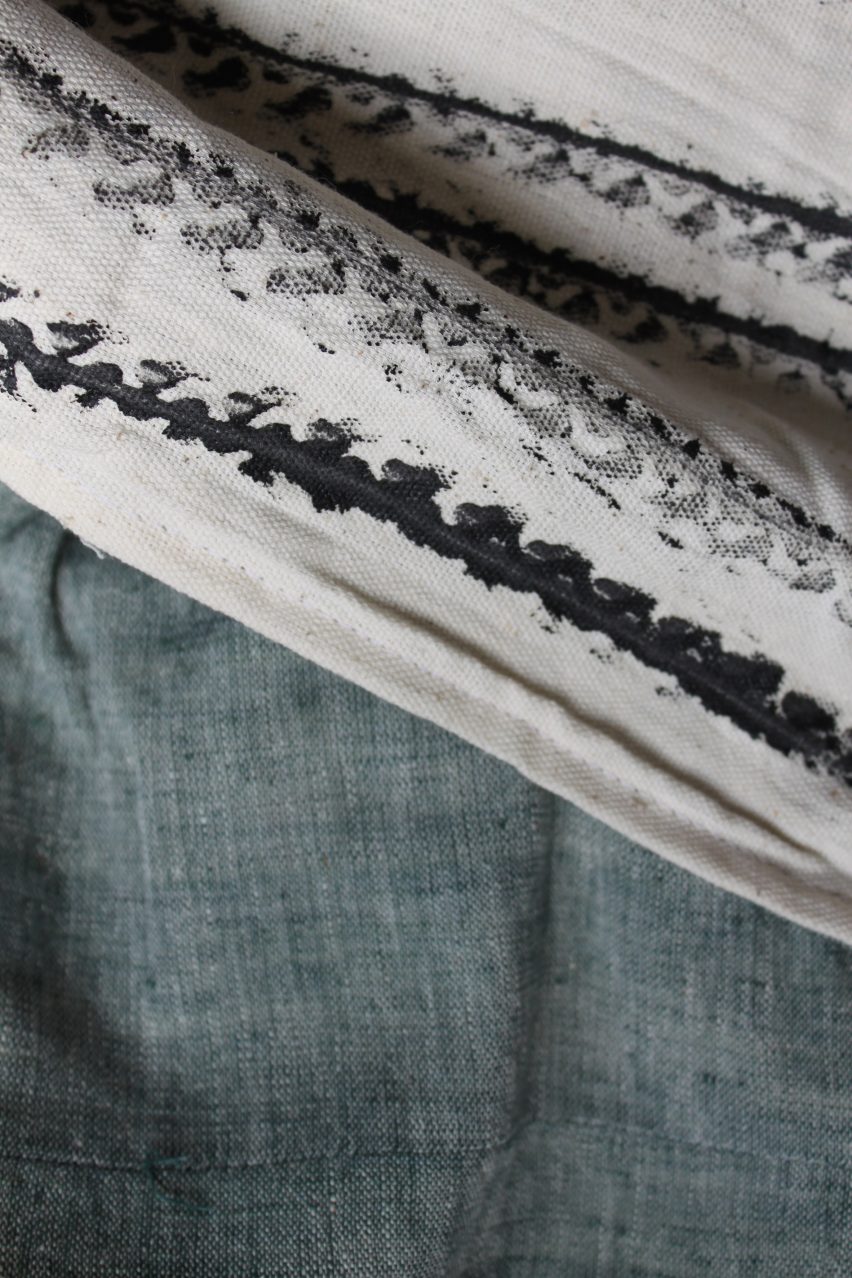
Each has been decorated by Gijsen using Air Ink – and she claims that the amount of ink used for each scarf was made from around 150 minutes of vehicle pollution.
Pollution was a recurring theme across this year's Dutch Design Week, which took place from 21 to 29 October 2017.
One of the talks hosted by Dezeen as part of our Good Design for a Bad World initiative focused on the issue, and saw the likes of industrial designer Dave Hakkens, This is Ecocide founder Bernhard Lenger, and DoepelStrijkers co-founder Eline Strijkers debate whether designers could truly make a difference.